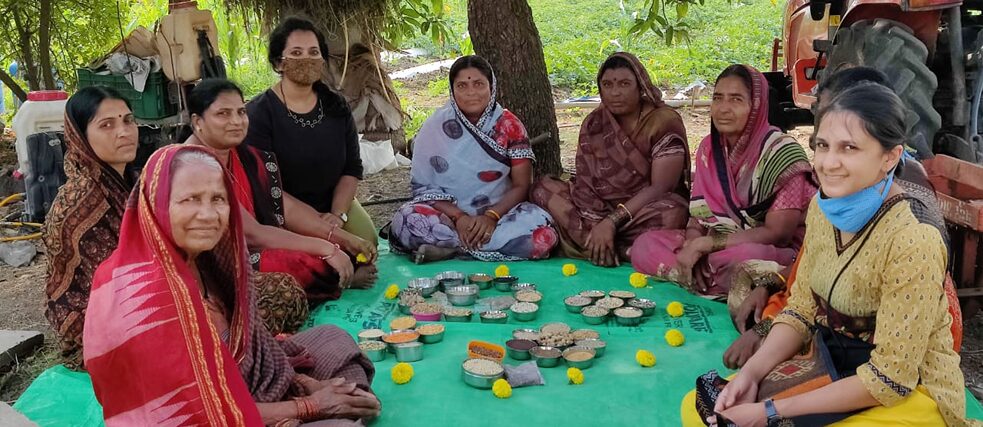Interview with Reetika Revathy Subramanian and Maitri Dore
Even today, women are not recognized as skilled farmers

Why does the world need to learn more about your story’s protagonist?
Conversations on the links between feminism and agriculture, labor and land ownership, particularly from the Global South, are not adequately documented. Even today, women are not recognized or rewarded as farmers or as skilled laborers by families, the State or markets. What is truly remarkable about Godavari is that she not only recovered from her huge personal tragedy but that she continues to back other women farmers grappling with frequent droughts, arid farmlands and male-dominated markets.
What gives you most pleasure while working on the project?
We spent a week meeting with Godavari, her family, friends and work colleagues. We also closely interacted with the women farm-entrepreneurs, who passionately explained the rationale and workings of their innovative one-acre model. The local model had even helped tide them over during the strict COVID-imposed lockdowns throughout the year. This deep dive into Godavari’s phenomenal work and bringing it to life through comics has been enormously thrilling.
What aspect have you found most challenging during the process so far?
In terms of telling the story, it has been challenging to appropriately convey Godavari’s local realities in a way that’s understandable for an international audience without compromising on context. We interviewed over 20 people in her personal and professional circles to piece her story together. The comic has to be made and remain meaningful to both a hyper local and a transnational audience.